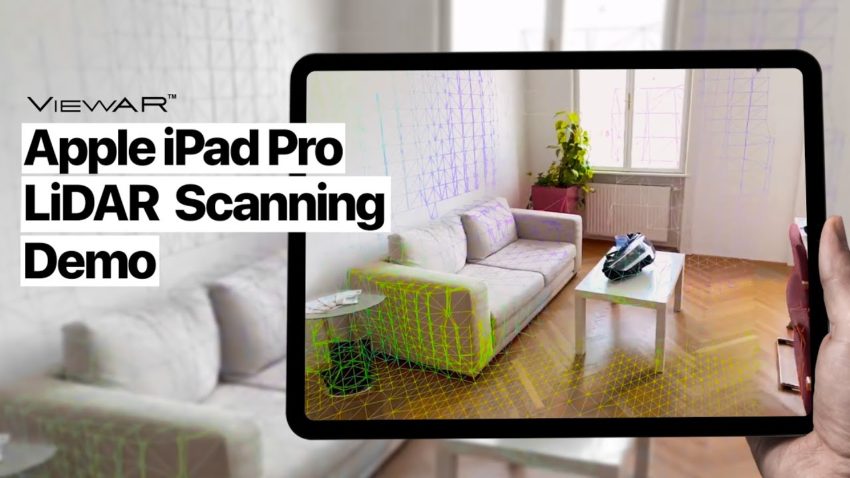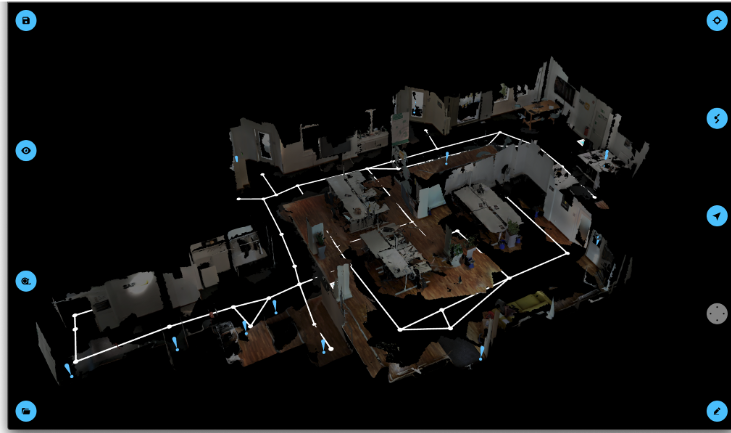
Apple’s iPad Pro with LiDAR Sensor – What you can do with it.
Table of Contents
In March 2020, Apple released the new iPad Pro 2020, which features an A12Z Bionic chip, making it more powerful and faster than many common laptops. One of its standout features is the integrated LiDAR (Light Detection and Ranging) Sensor, which enables users to 3D scan their environment with remarkable precision.
The LiDAR Sensor enhances the device’s ability to perform both indoor and outdoor distance measurements within a radius of up to five meters. It operates at photon-level speeds in nanoseconds, providing highly accurate and rapid data. This capability opens up a range of possibilities for augmented reality applications, improving functionalities such as indoor navigation, object detection, and spatial mapping.
Here is a video scanning our office:
However, Google is also investigating new features for the use of LiDAR Scans both, with and without operating a depth camera.
Application types using depth cameras
VIEWAR created an augmented reality ecosystem to develop AR experiences for various use cases, such as indoor navigation, remote assistance, predictive maintenance, and product visualization. Additionally, they have developed several applications utilizing depth cameras and reconstruction techniques using external cameras like the Structure.io sensor.
Measuring (Surface & Volume computation)
Using a depth sensor allows you to create a 3D reconstruction of a room or objects. This can be used in order to compute measurements and volume like we did in a project for Lufthansa Cargo.
The LiDAR Scanner on the new iPad Pro provides useful guiding lines that instantly appear when using the “Measure app” for a more fast and accurate measurement of objects. In addition, this app also offers a more granular “Ruler View” allowing you to save lists of all measurements and include screenshots to save it for future projects.
Flooring
A depth sensor is also highly relevant for industries in the field of flooring. It allows you to visualize different flooring materials in a room. Also it provides accurate measurements of the flooring area.
VIEWAR is currently working on a solution for flooring. If you are interested in this solution, register at portal.VIEWAR.com and request early access for the flooring template.
Product Visualization – Occlusion
One of the main aspects in product visualization is that objects should look and behave like they were real, they should merge with the environment.
Indoor Navigation
There is also a huge opportunity for 3d reconstructions in indoor navigation. Scanning 3d environments can help to determine your position and also add advanced occlusion effects while using the application.
The 3d scans can also be used for admin interfaces of indoor navigation.

Image: GuideBOT Admin Interface – SAP.iO Foundry office Munich
Using the VIEWAR system and the LiDAR sensor
VIEWAR offers users ready-made augmented reality templates without to set up their own AR apps or to use the VIEWAR JavaScript API to create custom applications.
We are constantly adding features like Apple’s LiDAR scanning capabilities to our developer platform to provide a more user-friendly experience when creating AR apps with VIEWAR. Would you like to find out more about our offerings?
Register at portal.VIEWAR.com to find out more about the VIEWAR system.
Or contact us if you want us to build an app for you.